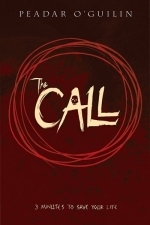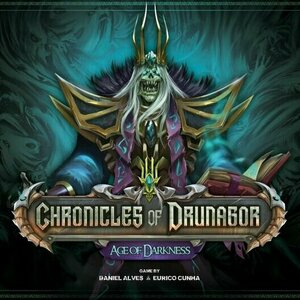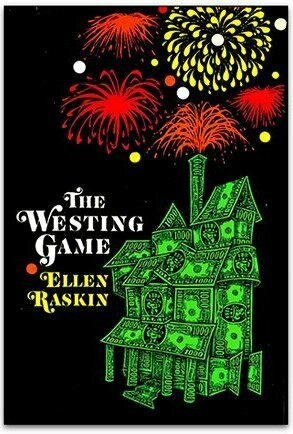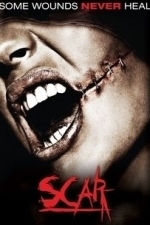Heather Cranmer (2721 KP) rated The Westing Game in Books
Dec 13, 2020
Sixteen people all move into Sam Westing's apartment building after receiving a letter inviting them to move in. They are the only tenants in the building. Little do they know that they were picked to play in a game where they could potentially win a lot of money. However, they must play hard to win if they want to inherit millions even if the game may be dangerous.
I didn't realize it while reading The Westing Game, but this book is considered middle grade fiction. The way it is written, I think every age group would enjoy it. It's a fun and easy read. The plot flows smoothly, and the story progresses with ease. Each page is filled with mystery. I found myself guessing who was the murderer and which person would figure out the clues to inherit Sam Westing's inheritance. I will say that The Westing Game's mystery had me stumped. I never could guess who was who which made me love this book even more. This book is chock full of mystery and intrigue. It will leave you scratching your head as you read it trying to figure out who killed Sam Westing. There's plenty of plot twists, and just when you think you have figured everything out, you will find out how wrong your guess was. I've never read a book that stumped me so much while trying to figure out everything! However, by the end of the book, everything is revealed. All questions are answered, and the author lets us know how each character got on in life. One minor annoyance (and I believe it's a personal thing) was that the writing seemed a little choppy to me in how it was written. Maybe it is just that style, but I found it a bit peculiar. However, that didn't take away my interest in the story that much.
I thoroughly enjoyed the characters in Ellen Raskin's The Westing Game. I enjoyed the diversity of the characters in the book. I do wish there was a bit more backstory for each of the characters though. It's not that they didn't feel fleshed out because they did, but I would have enjoyed learning more about each one of them a bit more before they moved in to Westing's apartment building. I enjoyed Turtle's character the most. Although she was often looked over, her determination to prove herself was admirable. I like how, despite her young age, she threw herself into Sam Westing's game. Sydelle was my least favorite character. It wasn't because she wasn't written well, quite the opposite. I just found her personality annoying. I kept hoping she was somehow be kicked out. Even though she wasn't mentioned as much, I really liked Madame Hoo. I enjoyed her scenes and her personality on the pages she was mentioned in.
Trigger warnings for The Westing Game include minor violence, death, suicide, drinking, and minor racism from one of the characters.
With it's mysterious plot and interesting cast of characters, The Westing Game is one of those books that you will love reading while trying to figure out its plot. It will keep you on your toes at all times! I would definitely recommend The Westing Game by Ellen Raskin to those aged 13+ who are after an unpredictable and well written mystery novel.
Darren (1599 KP) rated Scar (2007) in Movies
Sep 26, 2019
Performances – Angela Bettis is strong in the leading role of this film, she often took chances on horror and this is one where she can lead the film and deal with the horrors involved. Kirby Bliss Blanton is solid in her role though she doesn’t get as much to do other than be generic teenager. Ben Cotton does make for a good villain that showed just how twisted his character it. The supporting cast are all solid enough without being challenged to do anything to make them standout.
Story – The story follows a victim returning home for the first time only to face a serial killer she believed she had killed to protect her niece. The story does a good job balance the two timelines as we see how Joan is reacting to the ordeal from her first encounter to the new encounter, playing along the lines that she might not be as clean as she thought she was. We also get to deal with how people can become interested in killings over the stories about the killer over the victim. The strangest twist in the film is the fact that another bigger film seemed to use the exact same twist and motives behind the killings, I won’t mention the film because it will ruin the end of the film.
Crime/Horror – The crime side of the film follows the action of the serial killer which plays into the horror because of the torturous nature that they follow through the film, the wounds feel real, look real and brutal with just how they are made to look.
Settings – The film takes place in a small town, which has a reputation, we see the normal locations, but it is in the shadows where we see the killer conduct their actions.
Special Effects – The effects come from the graphic body horror we are put through by the killer, the wounds being enough to make the blood appear over causing fatal wounds.
Scene of the Movie – The killer’s identity.
That Moment That Annoyed Me – The killer’s motivation.
Final Thoughts – When it comes to late night horrors sometimes we can just enjoy the events for what they are, this is one of the perfect examples of this giving us horror when we need it and a simple horror to watch.
Overall: Midnight horror treat.
James P. Sumner (65 KP) created a post
Aug 22, 2019

MoneyControl Plus
Finance and Utilities
App
Over 7000 5-star ratings from around the world are perfect proof that MoneyControl is the perfect...

Chinese Zodiac
Utilities and Entertainment
App
********************************************* For those who have purchased these in app purchase,...

9GAG: Best LOL Pics & GIFs
Entertainment and Lifestyle
App
---- The FUNNIEST APP ever! ---- 9GAG is THE BEST APP for you to lol, kill time and make new...

Safety Photo+Video
Utilities and Photo & Video
App
YOU DESERVE SOMETHING SPECIAL TODAY! FULL VERSION IS NOW 50% OFF SALE! BUY NOW BEFORE THE PRICE...

The Call
Book
THREE MINUTES You wake up alone in a horrible land. A horn sounds. The Call has begun. TWO...

Chronicles of Drunagor: Age of Darkness
Tabletop Game
Daren has always been a land mired in conflict – from the moment the Mortal Races met in its...

Futbol Tahminler LE
Sports
App
What are Soccer Predictions, Basketball Predictions and Hockey Predictions? * Our applications make...

